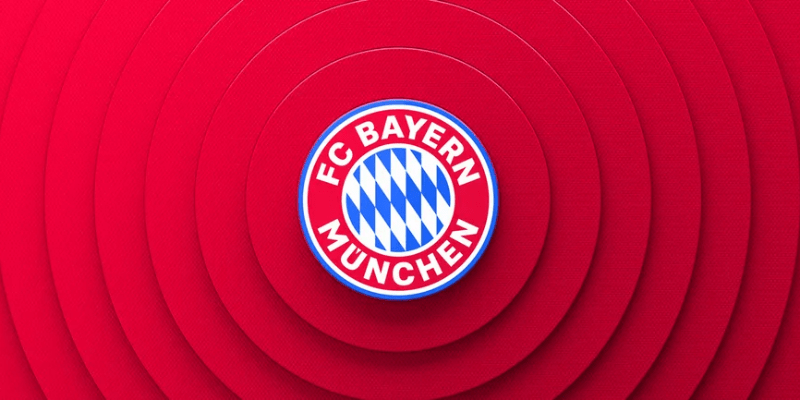When a fresh-faced teenager steps onto the Allianz Arena turf to don the red and white, history is made. Fans hold their breath, pundits whis, and the club hopes it’s a star in the making. Among those record-breakers, Paul Wanner carved his name forever as the youngest player to play for Bayern Munich. In this article, TigerKick will guide you through the story behind this milestone, compare his feat with other youthful debutants, explore Wanner’s journey since that first appearance, and reflect on whether the record might ever be broken.
The Record That Changed Bayern’s History

On January 7, 2022, amid a season tested by COVID-19 absences and squad rotation, Bayern Munich turned to their youth. In the Bundesliga match against Borussia Mönchengladbach, the coaches entrusted a 16-year-old to carry the club’s legacy forward. Coming off the bench in the 75th minute, Paul Wanner officially became the youngest player to play for Bayern Munich in a competitive match. He was just 16 years and 15 days old, shattering the previous record held by Jamal Musiala (who debuted at 17 years and 115 days).
By doing so, Wanner wasn’t just rewriting Bayern’s history — he also logged his name among the youngest ever in Bundesliga history. Only Borussia Dortmund’s Youssoufa Moukoko (16 years and 1 day at debut) has entered a top-flight fixture at a younger age.
This debut was not a fluke. It was the culmination of faith in youth and the perfect storm of opportunity. The club’s decision to trust a raw talent under pressure speaks volumes about their vision and the weight of legacy that even a teenager can carry in Munich.
Before Wanner: Bayern’s Young Debutants
To grasp how sensational Wanner’s debut was, it’s worth revisiting some of the youngsters who came before—players who were precocious, pushing at the door of first-team football at Bayern.
Jamal Musiala — The Previous Benchmark
Long before Wanner, Jamal Musiala was the poster child of Bayern’s youth revolution. Debuting in June 2020, Musiala was 17 years and 115 days old when he first appeared in the Bundesliga for Bayern. He held the youth record for the club and broke several club scoring records thereafter. He would go on to become a foundational star.
Pierre-Emile Højbjerg — A Scandinavian Entry
In April 2013, Pierre-Emile Højbjerg became Bayern’s youngest first-team entrant at the time. He was 17 years and 251 days old when he appeared as a substitute in the Bundesliga. That record stood for nearly a decade until younger talents emerged.
Other Notables in Bayern’s Youth Pipeline
Over the years, Bayern has handed early debuts to players like Alphonso Davies, David Alaba, Toni Kroos, and others. While they weren’t record-breakers in the youngest-ever sense, these names show the club’s consistent willingness to trust youth. Musiala, Davies, and others laid the groundwork — and Wanner leaped past them in age.
These stories show two things: Bayern has long had a tradition of integrating youth, and each new record feels like a renewal of that legacy.
The Paul Wanner Story: From Academy To Debutant

Wanner’s path to that moment was not overnight. It was the product of training, potential, and opportunity.
Early years and academy rise
Born on December 23, 2005, in Dornbirn, Austria, Wanner holds both Austrian and German citizenship. He grew up in Southern Germany and entered Bayern’s youth academy around 2018, having previously played with FV Ravensburg. He steadily progressed through age groups, catching the eye of coaches with his technical ability, vision, and maturity beyond his years.
The opportunity knocks
In early 2022, Bayern’s first-team squad was affected by injuries, absences, and rotation. The coaching staff needed reinforcements, and Wanner was called up. In that match on January 7 against Gladbach, he replaced Marc Roca and became the youngest player to play for Bayern Munich in an official match. With that substitution, he etched his name in the club’s record books.
Beyond the debut
Wanner’s career didn’t stop at a cameo. Over the next years, he earned sporadic first-team appearances and featured for Bayern II. He also made history in the Champions League — at 16 years and 293 days, he became Bayern’s youngest participant in that competition. Eventually, Bayern sent him out on loan to SV Elversberg (2023–24) and later 1. FC Heidenheim (2024–25) to gain regular playing time and maturity.
In the summer of 2025, Wanner transferred to PSV Eindhoven — a move that offered him a fresh platform while Bayern retained interest in his development. Even as he leaves Munich, his record remains unchallenged.
How Wanner’s Debut Stacks Up — Who Could Challenge It?

Is the record safe or under threat? Let’s examine the context and watch for future challengers.
The rarity of the feat
Debuting at 16 in a club like Bayern is extremely rare. Top teams rarely risk such young talent in high-pressure matches unless circumstances align — injuries, fixture congestion, or exceptional confidence in the player. Because of that, Wanner’s record is not just a number but a reflection of a perfect storm of talent and timing.
Current youth landscape at Bayern
Bayern continues to recruit promising young players. Names like Wisdom Mike are already appearing among the club’s youngest debutants. In a recent match (just after his 17th birthday), Mike featured for Bayern in the Bundesliga, making the youngest debutants list. However, he remains outside absolute record territory.
Possible challengers
To break Wanner’s record, a player would need to debut at age 16 or younger in a competitive first-team fixture. That’s a steep ask, even for top talents. Bayern’s recruitment of young defenders like Adam Aznou (he debuted at 18) shows the club’s willingness to experiment, but so far none has approached the 16-year plateau.
If Bayern or any elite club in Germany finds a prodigy with the maturity, physical readiness, and mental resilience to debut that early, Wanner’s record might someday be tested. But that day hasn’t come — and may not for some time.
Legacy and meaning beyond the number
Being the youngest player to play for Bayern Munich is more than a tri.
- Club trust and symbolic value: Bayern gave Wanner a chance in one of their darkest moments (COVID-impacted squad). That shows genuine belief in youth, not mere risk.
- Expectations and challenge: Young record-breakers often face intense scrutiny. Wanner’s subsequent career — loans, development, minutes — will define whether he fulfills early promise.
- Benchmark for youth: Every Bayern academy prospect and Bundesliga young talent now measures themselves against the Wanner mark. It raises the bar.
- Record’s lifespan as narrative: Records like this rarely last forever. They become part of club folklore. Wanner’s name will be mentioned for decades when fans talk about precocity, youth development, and Bayern’s philosophy.
Conclusion
The youngest player to play for Bayern Munich record belongs to Paul Wanner, who stepped onto the pitch at just 16 years and 15 days — a moment that fused youth promise and club tradition. His debut cast a new standard, comparing him favorably to past young stars like Musiala, Højbjerg, and others. Though he’s since moved on loan assignments and now transferred to PSV, the mark he left in Munich’s history remains unbroken — as long as no youngster matches his precocious timing.
If you’re following Bayern’s youth prospects, Bundesliga records, or future transfer stories, TigerKick will keep you updated. Dive into our site for player profiles, match previews, historical records, and more — and see whether Wanner’s record will ever be challenged again.






